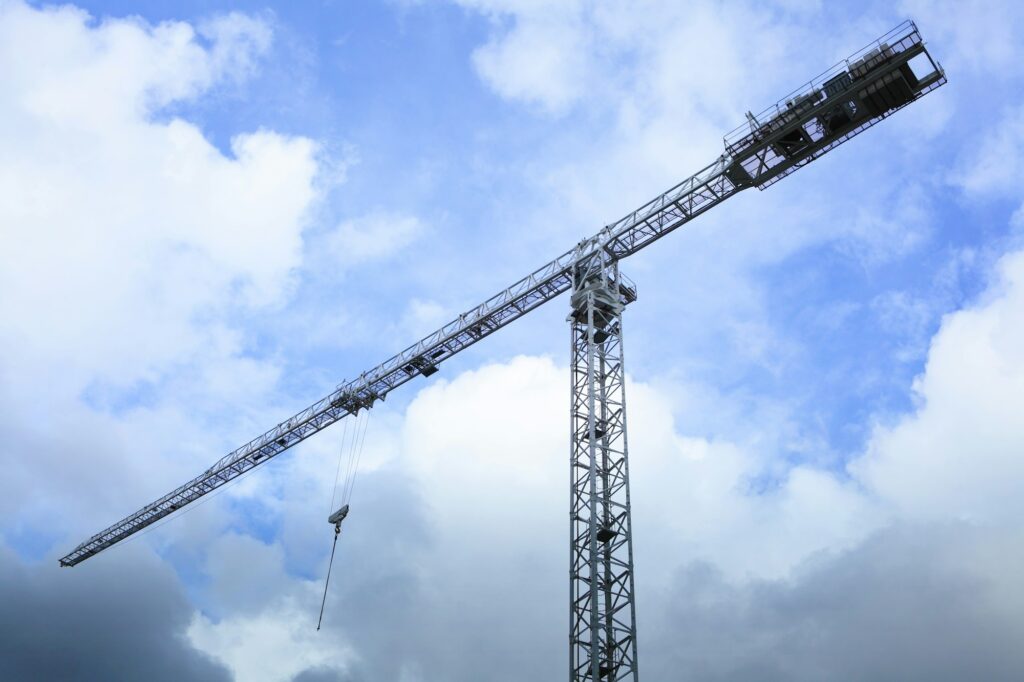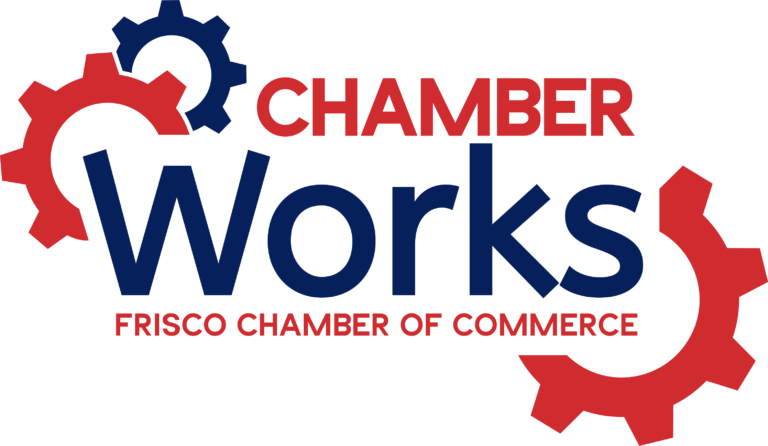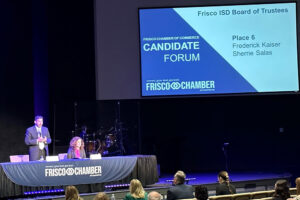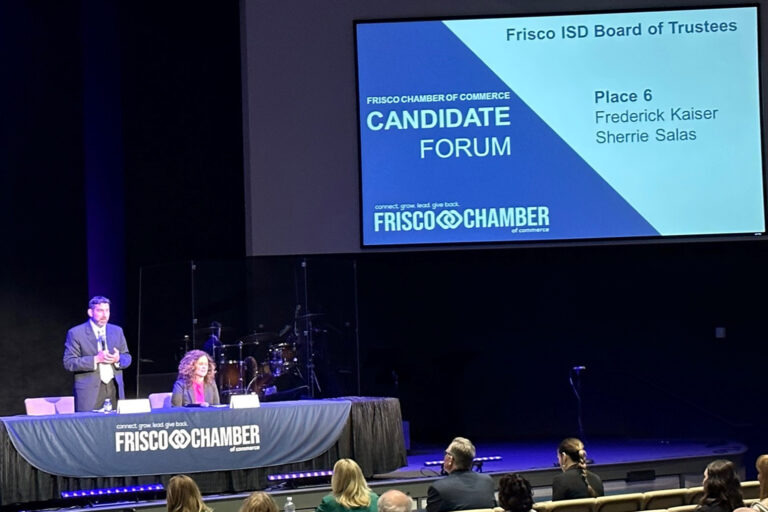Frisco Region Primary Candidates Q & A
The following races face same-party challengers in the March 5, 2024 Primary Election. Questions were curated in collaboration with our members and key stakeholders and address business and workforce issues in the Frisco region. Please note, candidate responses are worded verbatim from the emails they provided. Additionally, you may access their candidate website by clicking on their names.
State Senator, District 30 - Republican Candidates
Question: Increased funding for public schools has bipartisan support in both the Senate and the House but was held back last session because it was tied to voucher legislation. Do you support increased funding for public schools? If so, what is your plan to make sure it passes the next session?
The majority of Texas children attend public schools, and that will continue even with legislation designed to empower parents to choose non-public-school options for their children. Texas currently spends more on public schools than any other state, yet the outcomes for our public schools do not reflect that fact. Our future depends on a school system that produces competent, well-formed citizens, with the character fitted for life in a republican form of government. We must have not just an educated citizenry, but one that has the ability to think critically and with discernment and wisdom. The people that have the biggest impact on that outcome are teachers. We should be focusing on good quality teachers by increasing salaries and benefits. We need to reform the way our schools are funded, because the current process is convoluted and cumbersome. This is absolutely a goal that could be accomplished and should be prioritized in the upcoming session.
Question: What are your thoughts on the current accountability system for public schools, and what changes would you support if any?
The current A-F accountability is misleading at best. There are school districts in SD 30 that have a C rating, but per capita have more students attending Ivy league universities than schools with A ratings. These ratings are based primarily on how the students did on the STAAR test; a test that many educators think is a disservice to our students. We need to look at the way we calculate these ratings. I know last session, HB 4402 sought to bring some changes to the STAAR. Children are all different – they learn differently, they test differently. We need to stop doing one size fits all, high-stakes tests to gauge if they are learning the things that need to be taught.
Question: Frisco continues to be successful in attracting national relocations and new industries to the area. Last session, HB 5 replaced the long-standing incentive tool that Texas used to encourage economic growth. What is your position on economic incentives for business attraction and expansion?
The marketplace and business works best when the government interferes the least. Some refer to the Texas economic engine as the Texas miracle. As a 7th generation Texan, I can attest to the incredible economic growth of Texas, but I don’t think we shouldn’t consider it a miracle when the government stays out of the marketplace. People, including business owners, are moving by the thousands to SD 30 from states like California because of freedom and low taxes. While HB 5 may have marginally improved the long-standing economic incentive tool, freedom and lower taxes are the keys to business attraction and expansion. We should look at eliminating the Franchise Tax. I commend the legislature for raising the amount that a business makes before subjecting them to this tax. However, a tax on a company’s gross and not its profit is not in line with being business friendly. Another area that we need to look at reforming is the Business inventory tax. We also need to consider reforming our occupational licensing regulations and other barriers to marketplace participation by small business owners.
Question: Workforce shortages continue, with sectors like healthcare, early childhood education, and the service industry facing measurable challenges that affect both consumers and businesses. What is your position on how the state of Texas can assist in filling workforce gaps in key industries?
Based on my experience with Mental Health, schools, and even rural law enforcement, it is not the business that has the issue. Things like mental health have to deal with state laws regarding licensing and pay. If it is a state hospital, pay is set by the state. Oftentimes, our jails are having to keep inmates in their jails because they cannot get placement in the state hospitals. Not due to a lack of beds, but because of a lack of staff. This affects our taxpayers and our jails. Teacher pay is also somewhat tied to the state. This is a profession that can cost upwards of $100,000 to obtain a degree for a job that at best starts out at half that. It is worse for the rural school districts. These kids go off to college and rarely want to come back to a rural district because of pay. Last session, some tried to get a bill passed that would allow community colleges to offer a 6th baccalaureate degree in teaching. This would have provided a way for teachers to get their degree at a much lower cost. This attempt failed. We did manage to get through SB 22 which provides grants for rural LEOs to be able to pay their law enforcement more and get much needed equipment.
Question: Increased funding for public schools has bipartisan support in both the Senate and the House but was held back last session because it was tied to voucher legislation. Do you support increased funding for public schools? If so, what is your plan to make sure it passes the next session?
I support ensuring our public schools are adequately funded and increased funding is provided to the schools and school districts that need increased funding. I highly support our teachers and ensuring that we can recruit and retain the best of the best in the country. We should not be holding funds hostage to pass one legislative priority. I believe that we need to step away from one-size-fits-all approaches to education funding in Texas. We need to realistically look at unique aspects of each school district, especially rural versus urban and suburban districts. I believe that we can have parental choice, and still ensure that our public school system is adequately funded to educate our children.
Question: What are your thoughts on the current accountability system for public schools, and what changes would you support if any?
I believe that our current accountability system needs reform. High-stakes exams are rarely a useful measure of academic success or comprehension. We need to have an honest look at why certain schools may be failing and ensure that we are not setting them up for that failure by keeping them from resources or funding that would help them achieve success.
Question: Frisco continues to be successful in attracting national relocations and new industries to the area. Last session, HB 5 replaced the long-standing incentive tool that Texas used to encourage economic growth. What is your position on economic incentives for business attraction and expansion?
I believe that local municipalities need to be able to attract businesses and to be able to provide economic incentives for the benefit of the local community. However, I believe that the taxpayers need to have a strong voice and the final say as to any economic incentives that they are paying for. There must be absolute transparency in government and spending. Funding for incentives must be clearly delineated and not infringe on landowners or voter rights and liberties. Government overreach into business is a huge problem. We must ensure that we keep the government and excess regulations that crush the free market out of the way of innovation and organic growth.
Question: Workforce shortages continue, with sectors like healthcare, early childhood education, and the service industry facing measurable challenges that affect both consumers and businesses. What is your position on how the state of Texas can assist in filling workforce gaps in key industries?
Sometimes, it isn’t just about the money. I know this to be especially true in healthcare. The best thing that we can do to help grow our workforce and retain our workforce is to remove burdensome regulations and ensure that the work climate is fulfilling and sustainable. Government overreach IS the problem. We have to be sure that unemployment isn’t more attractive than employment- especially in these critical sectors where the workforce is struggling. The State has had some significant unintended consequences from unfunded mandates resulting in increased costs of business which immediately impact the workforce. We need to eliminate these unfunded mandates and bring free market competition back into healthcare, education, and service industries.
Question: Increased funding for public schools has bipartisan support in both the Senate and the House but was held back last session because it was tied to voucher legislation. Do you support increased funding for public schools? If so, what is your plan to make sure it passes the next session?
I support strong funding for both public schools and a school choice program allowing parents to protect their children from woke ideological grooming. I will do my part to make sure both pass during the next session.
Question: What are your thoughts on the current accountability system for public schools, and what changes would you support if any?
Without question, the priority should be the education and well-being of the student. Because the State has the responsibility to provide all Texans with education, the State must ultimately hold school districts, administrators, and educators accountable.
Question: Frisco continues to be successful in attracting national relocations and new industries to the area. Last session, HB 5 replaced the long-standing incentive tool that Texas used to encourage economic growth. What is your position on economic incentives for business attraction and expansion?
Economic incentives are just another tool in the toolbox for the Texas economy. If they are win-win, I support them.
Question: Workforce shortages continue, with sectors like healthcare, early childhood education, and the service industry facing measurable challenges that affect both consumers and businesses. What is your position on how the state of Texas can assist in filling workforce gaps in key industries?
For healthcare and education, the state university programs for these areas should be expanded and incentives for students enhanced. Service industry work shortages can be aided by eliminating the minimum wage requirements to let businesses compete for workers. Reduce business regulation and let the market solve the problem.
Question: Increased funding for public schools has bipartisan support in both the Senate and the House but was held back last session because it was tied to voucher legislation. Do you support increased funding for public schools? If so, what is your plan to make sure it passes the next session?
I do not think it is a conservative value to have an undereducated populace. I would like to see our schools rated better than the high 30’s to 40’s nationally depending on which metric you look at. We need to get social theories out of our schools, stop teaching the test, get back to reading, writing, and arithmetic, and teach our kids not what to think but how to think critically. I am ready to vote on a school choice/voucher plan that ensures that parents are the decision makers in all matters, including the educational needs of their children while ensuring that we do not hollow out the limited educational opportunities in our much more rural ISD’s. We can do that through careful bracketing or carve outs to ensure that rural communities aren’t unintentionally undermined. We can use some of our budget surpluse to shore up public funding as well.
Question: What are your thoughts on the current accountability system for public schools, and what changes would you support if any?
I don’t think there is much of one at the moment. Currently there is a temporary order releasing the newest accountability scores from the TEA which I would like to see overturned so the scores could be released. Additionally, among the most critical places we need conservative elected officials are on our school education boards as they dictate oversight of our ISD’s and the TEA.
Question: Frisco continues to be successful in attracting national relocations and new industries to the area. Last session, HB 5 replaced the long-standing incentive tool that Texas used to encourage economic growth. What is your position on economic incentives for business attraction and expansion?
I’m extremely pro business, and maintaining Texas’ position as one of the top spots for big business relocation is of primary importance to me. We already have a lower cost of living when compared to many states, have no state income tax, and when coupled with appropriate business incentives Texas will benefit from great businesses deciding to come here increasing the quality of life for Texans, and their families.
Question: Workforce shortages continue, with sectors like healthcare, early childhood education, and the service industry facing measurable challenges that affect both consumers and businesses. What is your position on how the state of Texas can assist in filling workforce gaps in key industries?
As the Legislature, we can continue to fund programming with the Texas Workforce Commission to help both employers and employees train, and develop their workforce. Things like the Skills Development Fund can assist in developing current employees with new skills or it can be used supplement new employment initiatives for employers. Additionally, I have given our Legislative officials actionable plans to carve out 3 to 400 million annually from our Health and Human Services budget in wasteful spending, without losing services for individuals which could go to supplementing caregiver wages, proving more funding for mental health programing or it could even be reallocated towards early child education. Lastly, we are fortunate to have budget surpluses in our State, and we should use some of those funds to help address the workforce shortage in different sectors of the Texas economy so the Texans served by those industries don’t lose their lifelines.
State Senator, District 30 - Democratic Candidates
Question: Increased funding for public schools has bipartisan support in both the Senate and the House but was held back last session because it was tied to voucher legislation. Do you support increased funding for public schools? If so, what is your plan to make sure it passes the next session?
I do not support any funding for private schools (or anything else) out of the public school budget. I’m going to vote with other Democrats to fund public schools. I think any committee that meets on this should have to wargame a household budget on a new teacher’s salary. These rich Republicans don’t understand how quickly a paycheck disappears these days.
Question: What are your thoughts on the current accountability system for public schools, and what changes would you support if any?
Standardized testing is a joke, and shouldn’t be used for anything more than identifying which communities need to be invested in. Fix poverty, fix everything. Source: https://www.mdpi.com/2227-7102/14/2/129
We need to get niche political/religious interests out of the curriculum writing, and let educators educate, not weirdos like Mike Miles and his incredibly boring and unteachable New Education System.
Question: Frisco continues to be successful in attracting national relocations and new industries to the area. Last session, HB 5 replaced the long-standing incentive tool that Texas used to encourage economic growth. What is your position on economic incentives for business attraction and expansion?
Texas advertises as business friendly… but we don’t have the workers modern companies need at the wages they want to pay. We need stronger, pro-worker labor laws and more housing supply for all income brackets so Texas can retain and attract a workforce. Then companies can accurately forecast the true costs of doing business in Texas.
Question: Workforce shortages continue, with sectors like healthcare, early childhood education, and the service industry facing measurable challenges that affect both consumers and businesses. What is your position on how the state of Texas can assist in filling workforce gaps in key industries?
Bernie Sanders fan here. UBI would help solve a bunch of these problems, but that’s a moonshot in Texas. I’d at least like to introduce a “baby bonus” program that provides cash for kids from birth to 18, that would help pay for childcare or maybe make it make possible for single income households to, like, exist. We need to get housing supply up and regulate exploitative corporate investment in housing, that’s good for everybody. NOT A STATE ISSUE but Congress actually fixing immigration would help too, new Americans are more likely to live communally to get housing costs down to where service industry jobs make any sense financially. Teachers – we need to fix TRS, teachers need a livable pension that automatically adjusts for cost of living, and they also need Social Security. Our retired teachers have to go back to work, and our new teachers see no future in teaching. Nurses – Nurses need overtime pay that actually disincentivizes hospitals burning them out. Nursing is not a career you can keep up for 35 years, your body can’t hack the pace.
Question: Increased funding for public schools has bipartisan support in both the Senate and the House but was held back last session because it was tied to voucher legislation. Do you support increased funding for public schools? If so, what is your plan to make sure it passes the next session
Yes, I support increased funding in public schools. I plan to support using the taxes and from lottery sales to distribute evenly to all schools.
Question: What are your thoughts on the current accountability system for public schools, and what changes would you support if any?
I am for the current accountability system for public schools, with supporting changes in regards to testing out for high school graduation.
Question: Frisco continues to be successful in attracting national relocations and new industries to the area. Last session, HB 5 replaced the long-standing incentive tool that Texas used to encourage economic growth. What is your position on economic incentives for business attraction and expansion?
I support economic incentives for business attractions and expansions also enforcing that the monies for the school districts be distributed evenly to all schools
Question: Workforce shortages continue, with sectors like healthcare, early childhood education, and the service industry facing measurable challenges that affect both consumers and businesses. What is your position on how the state of Texas can assist in filling workforce gaps in key industries?
By companies offering incentive packages including low health insurance rates for employees also better working conditions. higher pay rate.
Question: Increased funding for public schools has bipartisan support in both the Senate and the House but was held back last session because it was tied to voucher legislation. Do you support increased funding for public schools? If so, what is your plan to make sure it passes the next session?
I support the desperate need for increasing funding for public schools. Our Public Schools are desperately underfunded right now. We have lost 40% of our Public School workforce in the past 2 years. This is largely due to underfunding, burnout, and politics. I support any increased funding for school teacher salaries, and public school support. However, I cannot support any system that takes any more money out of our already defunded Public Schools system – which is what the Voucher Program unfortunately is.
We have a “rainy day” fund in Texas, a fund we must tap into now – because every day is a rainy day for our public schools.
Question: What are your thoughts on the current accountability system for public schools, and what changes would you support if any?
Schools should be held accountable for ensuring they are giving the best learning environment they can to our students. The STAAR exams in our public schools may be missing the mark a bit when it comes to this. I know a lot of teachers leave their job as they often feel that the school cares more about their STAAR rating than their employees/teachers. STAAR needs revamping. Students should not be required to pass STAAR end-of-course exams to graduate, as STAAR tests should be only one of a variety of ways to measure academic performance, and whether students are ready to move on to the next grade. We also need to cut back on the number of STAAR tests students are required to take. In general, we need to limit the “high stakes” nature of STAAR by restricting their weight in school accountability.
Question: Frisco continues to be successful in attracting national relocations and new industries to the area. Last session, HB 5 replaced the long-standing incentive tool that Texas used to encourage economic growth. What is your position on economic incentives for business attraction and expansion?
I believe it is the job of the government to be as hands-on as possible to support our local businesses – small & local businesses are the lifeblood of our communities. We should provide tax-credits to businesses based on job-creation. Government should supply grants to support improvement of infrastructure that benefits businesses (such as roads, utilities, etc.). I support sales-tax exemptions, so that businesses can be exempt from paying sales tax on certain equipment or materials needed for expansion & operation. And government can do more when it comes to negotiating reduced rates for utilities [such as water, electricity, or natural gas] for businesses.
Question: Workforce shortages continue, with sectors like healthcare, early childhood education, and the service industry facing measurable challenges that affect both consumers and businesses. What is your position on how the state of Texas can assist in filling workforce gaps in key industries?
Let me first talk about our broken HealthCare system in Texas, a state that has the most uninsured number of residents in the country. There are so many things to speak on this, but first and foremost, Texas must join the Medicaid Expansion Program. This is a program that we Texas already pay for (through our Federal taxes). We Texans send our tax dollars into this National Money Bucket (of the Medicaid Expansion Program), and money funnels from that bucket into each state in the country that opts-in to this program. Which. Is. Not. Us. …so we Texans are paying for medical programs in other states, but not our own. I am aware that there are Health-Care providers who are dropping their Medicaid recipients due to lack of reimbursement from the HHS Commission – this is a travesty as this could have been mitigated by the Med-Expansion Program.
Aside from that when it comes to early childhood education, I support more public funding to our public education systems. Our Texas state government needs to take a greater proactive role in supporting education in every age-range of schooling, because education is something everyone wants for their child. A state that cannot support education, is a state that no one will want to move to. And a state that lacks an income of residents, is a state that is guaranteed to have a declining economy.
Look folks, at the end of the day, the quality of life for employees, and for families, is what matters the most for our economic development.
State Representative, District 61 - Republican Candidates
Question: Increased funding for public schools has bipartisan support in both the Senate and the House but was held back last session because it was tied to voucher legislation. Do you support increased funding for public schools? If so, what is your plan to make sure it passes the next session?
Increased funding for public schools comes up every session. I believe the funding needs an overhaul not just more money. We only spend 51% of our school budget on teachers salaries. Our administrative overhead burden is too high due to government regulation and federal government interference. The state of Texas should buy down the M&O portion of the education burden to relieve property tax payers. The entire property tax burden is too high and too complicated. We should add a consumption tax to help pay for our schools. We need to overhaul the entire system including replacing “Robinhood”. This is a very complicated problem and it will take a multi-faceted solution.
Question: What are your thoughts on the current accountability system for public schools, and what changes would you support if any?
I support a rigorous accountability system for our Texas public schools. After healthcare, public education is the costliest item in the state budget. Our hard-earned tax dollars must be spent wisely and for the benefit of our students. There is currently a lawsuit that is blocking new standards of accountability. I support the Texas Education Agency’s proposed ratings changes. The issuance of 2023 A–F ratings under the final 2023 rule is pending and subject to change based on judicial rulings or decisions from the 88th Legislature during a special called session.
When elected, I will be a strong advocate for more accountability and improved outcomes for academic achievement, academic growth, higher graduation rates, and college and career readiness.
Question: Frisco continues to be successful in attracting national relocations and new industries to the area. Last session, HB 5 replaced the long-standing incentive tool that Texas used to encourage economic growth. What is your position on economic incentives for business attraction and expansion?
I don’t believe north Texas has a problem attracting companies. Our problem is we are growing too fast to meet the needs of all these new residents and businesses. We are out growing our infrastructure. I believe HB 5 is a step in the right direction to balance the needs of communities with the demands placed on them by rapid growth.
Question: Workforce shortages continue, with sectors like healthcare, early childhood education, and the service industry facing measurable challenges that affect both consumers and businesses. What is your position on how the state of Texas can assist in filling workforce gaps in key industries?
Unfortunately there is not a sufficient supply of registered apprenticeship programs that align with high wage, high demand occupations needed to meet the workforce demands of the Lone Star State. There are approximately 5ive job openings for every active registered apprentice in the construction field; 75 openings for every health care apprentice; and a staggering 514 openings for every transportation apprentice. These are statewide aggregates of apprentices and job openings. Approximately 72% of Texas counties do not have a single registered apprentice within their borders. More pathways are needed. I strongly support the rules changes proposed by the Texas Workforce Commission to Title 40 of the Texas Administrative Code, chapter 838, to remove references to the federal Registered Apprenticeship Program and establish the criteria and application process for entities to participate in the Texas Industry Recognized Apprenticeship Program.
Question: Increased funding for public schools has bipartisan support in both the Senate and the House but was held back last session because it was tied to voucher legislation. Do you support increased funding for public schools? If so, what is your plan to make sure it passes the next session?
My top priorities are to make sure that students and teachers in Texas are given the tools they need to succeed. At the forefront of my mind is teacher recruitment and retention. Last session, I authored and passed HB 2672/SB 532, which expanded the math and science teacher tuition repayment program in Texas. Our current goal with this legislation is to address the deepening STEM teacher shortage in our public schools. Next session, I would like to expand this to include special education as well. We had a special session last year that was specifically for public education where we had hours of discussion on how to balance the needs of rural and urban districts. I do think there is a middle ground on the school choice fight where we can provide parents and families in desperate need of better options with opportunities, while maintaining the quality and funding of Texas public schools. As a legislative body, we have consistently increased public education funding each session but it seems like our investments are not achieving the expected quality increase in public education. Too many students are being left behind, and we need to get to the root of these issues. These are problems that we need to be discussing in Austin, and we need to have everyone at the table while trying to discover solutions. I will remain open to any and all conversations on public education while serving as an elected representative; our kids are worth it!
Question: What are your thoughts on the current accountability system for public schools, and what changes would you support if any?
I know that we have had discussions in Austin about the efficacy of the STAAR test and whether that should play a major role in accountability. I think we should continue to look at that and all other tools we use to judge the success of our public schools and make sure that they are reflective of what we are actually seeing from students. I would be open to supporting any changes that local superintendents or school boards brought up with me, I always keep those lines of communication open with area leaders in public education.
Question: Frisco continues to be successful in attracting national relocations and new industries to the area. Last session, HB 5 replaced the long-standing incentive tool that Texas used to encourage economic growth. What is your position on economic incentives for business attraction and expansion?
I believe that one of the biggest challenges Collin County is currently facing is the rapid growth we are experiencing. Such an explosion in population brings both opportunities and challenges. Infrastructure strain, roadway construction, a higher shared tax burden on citizens are just some of the challenges I encountered while serving in Austin, but we also saw record increases in small-business growth and development. We must ensure that we are doing everything possible to keep Collin County viable economically AND protect the conservative values that we as neighbors hold dear and make us such an appealing place to live. While I’m in the Legislature I will always vote for common-sense policies that attract businesses and foster economic development, but I will also always remain mindful of how any new additions can affect our community.
Question: Workforce shortages continue, with sectors like healthcare, early childhood education, and the service industry facing measurable challenges that affect both consumers and businesses. What is your position on how the state of Texas can assist in filling workforce gaps in key industries?
The Legislature in Austin can definitely influence how the state manages to fill workforce gaps and vocational training. We can provide incentives and encouragement for schools and colleges in Texas to provide more meaningful work placement programs and to focus on educational programs for industries and trades that we need more folks in. We also must continue to help these small businesses weather the economic impact they may currently be facing in this period of high inflation. We do that by cutting red-tape and by implementing legislation that encourages entrepreneurship and smart business and hiring practices. We are aware of most of the workforce shortages we are facing and are working proactively to do whatever possible to help get quality people into quality jobs.
Question: Increased funding for public schools has bipartisan support in both the Senate and the House but was held back last session because it was tied to voucher legislation. Do you support increased funding for public schools? If so, what is your plan to make sure it passes the next session?
Before providing additional funding, we will need to ensure that the funding is being spent on the most effective programs based on the results of the students’ learning. On another issue many believe that more funding will help with recruiting and maintaining teachers. More funding is secondary to creating the proper atmosphere that empowers the teachers to teach based on the needs of their students and not the Social issues that distract them from their jobs.
Question: What are your thoughts on the current accountability system for public schools, and what changes would you support if any?
Although the accountability is not described in the question, I will answer based on what it should and should not be. The Accountability System should not be based on Standardized testing. Education should provide resources to students that teach based on their learning abilities not a standard set of rules placed on them by the Education system. Once this is established then an Accountability System with proper metrics can be put in place to determine the desired results
Question: Frisco continues to be successful in attracting national relocations and new industries to the area. Last session, HB 5 replaced the long-standing incentive tool that Texas used to encourage economic growth. What is your position on economic incentives for business attraction and expansion?
The Economic and Community Developments have been in place for this particular purpose and voted in place by citizens of the cities to allow them to allocate Sales Tax Revenues for this purpose. The State already has their own Economic Development Corporation in place for the purpose of HB 5. Incentivizing with the abatements could result in shortages that lead to Question 1 above.
Question: Workforce shortages continue, with sectors like healthcare, early childhood education, and the service industry facing measurable challenges that affect both consumers and businesses. What is your position on how the state of Texas can assist in filling workforce gaps in key industries?
Each of these industries are determined by their leadership of the owners. The State is limited in its ability to govern or provide assistance to these industries directly. From an affordable housing standpoint, the state has created an issue with giving the appraisal districts Carte Blanche on property values to allow them to increase based on sales. Properties that sell are upgraded to drive the higher prices while the remaining properties do not upgrade and should not experience the same value increases. This will keep the values in check and prevent property tax inflation that causes the housing rents to go up.
State Representative, District 66 - Republican Candidates
Question: Increased funding for public schools has bipartisan support in both the Senate and the House but was held back last session because it was tied to voucher legislation. Do you support increased funding for public schools? If so, what is your plan to make sure it passes the next session?
The Texas legislature has increased education funding each session as enrollment growth in our state continues to grow. The current budget has over $90 billion allocated for educated. I’ve supported these budget increase during my tenure in the Texas House.
Question: What are your thoughts on the current accountability system for public schools, and what changes would you support if any?
Accountability in our schools is a good thing for our parents and students, however, the current accountability system relies too much on STAAR test results and I am working to reduce the amount STAAR tests impact accountability.
Question: Frisco continues to be successful in attracting national relocations and new industries to the area. Last session, HB 5 replaced the long-standing incentive tool that Texas used to encourage economic growth. What is your position on economic incentives for business attraction and expansion?
I am not a big supporter of economic incentives. Texas does not have an income tax and is very business friendly, making Texas very competitive. The Texas economy is now the 8th largest in the world and keeping taxes low and regulations reasonable is the key.
Question: Workforce shortages continue, with sectors like healthcare, early childhood education, and the service industry facing measurable challenges that affect both consumers and businesses. What is your position on how the state of Texas can assist in filling workforce gaps in key industries?
Our education system produces our next workforce and that is why I am a big supporter of K-12, our community colleges and universities. They key to addressing workforce shortages in the future will be to address low income, low education levels in our urban and rural areas.
Question: Increased funding for public schools has bipartisan support in both the Senate and the House but was held back last session because it was tied to voucher legislation. Do you support increased funding for public schools? If so, what is your plan to make sure it passes the next session?
I believe that parents need to be empowered to pursue the best educational opportunities for their children. Right now, the government’s focus is on funding failing government educational institutions that often do not serve the best interests of our children and which are increasingly epicenters of activism and indoctrination. Our tax dollars should be used to empower parents and set up students for the best possible educational success (whether public, private, or other), not only for their own futures but the future of America. Any increase in funding for public schools needs to refocus education on core academics while expanding practical training opportunities. Our education should incorporate essential American history and values, encourage merit, hard work, and achievement, and we must remove radical activism and ideological indoctrination in curriculum.
Question: What are your thoughts on the current accountability system for public schools, and what changes would you support if any?
I believe we need to assess whether the current accountability system is truly a metric for measuring success that will translate into future educational, business, and general life endeavors of Texas’ youth and not simply a box to be checked. I believe that we are in a period of significant technological growth which should both be integrated into our education and utilized to measure success and accountability. Advancements such as AI can be used as an accountability tool to determine what educational endeavors are translating into real-world successes and what endeavors are wasting time and resources. By ensuring that our education system is preparing our youth for future success, we will grow Texas’ economy and entice businesses to our great state.
Question: Frisco continues to be successful in attracting national relocations and new industries to the area. Last session, HB 5 replaced the long-standing incentive tool that Texas used to encourage economic growth. What is your position on economic incentives for business attraction and expansion?
I believe that property taxes are too high, which discourages businesses from choosing our state and thus creates a need for tax abatements and other incentives to draw them into our communities. We need to reevaluate property taxes to be more reasonable, eliminating the need for such incentives. This will make our Frisco and Collin County communities the obvious choice for both small business startups and large corporate relocations.
Question: Workforce shortages continue, with sectors like healthcare, early childhood education, and the service industry facing measurable challenges that affect both consumers and businesses. What is your position on how the state of Texas can assist in filling workforce gaps in key industries?
I believe that the free market is responsible for filling these gaps, not politicians in Austin. As we enter a more technologically advanced era, we see companies foregoing human employees in favor of robotics and even humanoids (like Tesla and GM).
It is essential to create an environment and generation that foster and thrive in a competitive free market, which will benefit hardworking Texans in every industry. Perhaps the best thing that legislators can do is improve our education and practical training opportunities to help Texas youth maintain a competitive edge against developing technology and workforce rivals. This will, in turn, make Texas a magnet for new and booming industry, expanding our workforce and growing our economy.
































